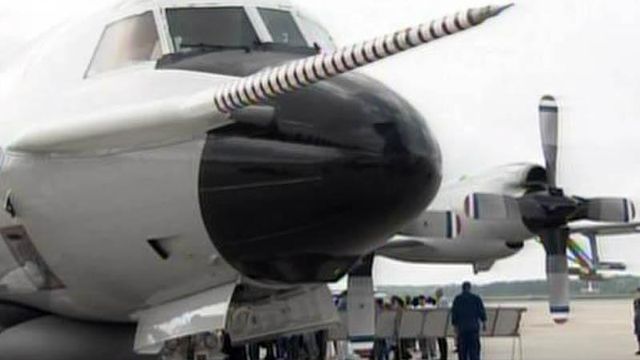Hurricane hunters improve forecasts, save lives
Hurricane hunters fly straight into the centers of storms as large as Category 5 Hurricane Katrina. The data they collect saves lives and millions of dollars each year.
Posted — UpdatedIt started with a dare among pilots in World War II.
More than 60 years later, hurricane hunters play an important role in keeping people safe during tropical weather.
Members of the 53rd Reconnaissance Squadron have flown missions into hurricanes since 1944. They have explored storms small and large, all the way up to Category 5 Hurricane Katrina.
During the off-season, they fly planes around the country on a mission to educate the public.
Most often, people ask what it's like to fly into such a powerful storm, they said.
"It's not really as bad as some people think," Barry Damiano, a meteorologist and flight director with the 53rd, said. "I had a research scientist tell me years ago that it's about 85 percent boredom and 15 percent sheer terror."
Pilots said the bigger storms are better organized and often don't make for a bad trip. Smaller, weaker storms, on the other hand, can give a bumpier ride.
The purpose of hurricane hunters is to collect detailed data from storms. Meteorologists on board the the planes measure wind speed, wind direction, pressure and other important information.
Forecasters use it to better predict a storm's path and strength.
"Without these guys, our jobs would be so much harder. In fact, we probably would be throwing darts at the dart board, because they give us so much crucial data," Robbie Berg, a hurricane specialist, said.
Hurricane hunters collect data with a device called a dopsonde. The device is dropped down a chute and out the bottom of the plane. It takes readings as it falls through the hurricane. Hurricane hunters track the dopsonde by radio signals and send the information to the National Hurricane Center.
"We can't stop these storms yet," so it's worth the risk to keep people safe, said Barry Cho, flight operations chief at the National Oceanic and Atmospheric Administration.
Forecasts are 30 percent more accurate thanks to the data collected by hurricane hunters – saving lives and millions of dollars each year.
"It's been proven to produce a better forecast, and people can get out of harm's way," Cho said. "It gives us a very good feeling."
• Credits
Copyright 2024 by Capitol Broadcasting Company. All rights reserved. This material may not be published, broadcast, rewritten or redistributed.





